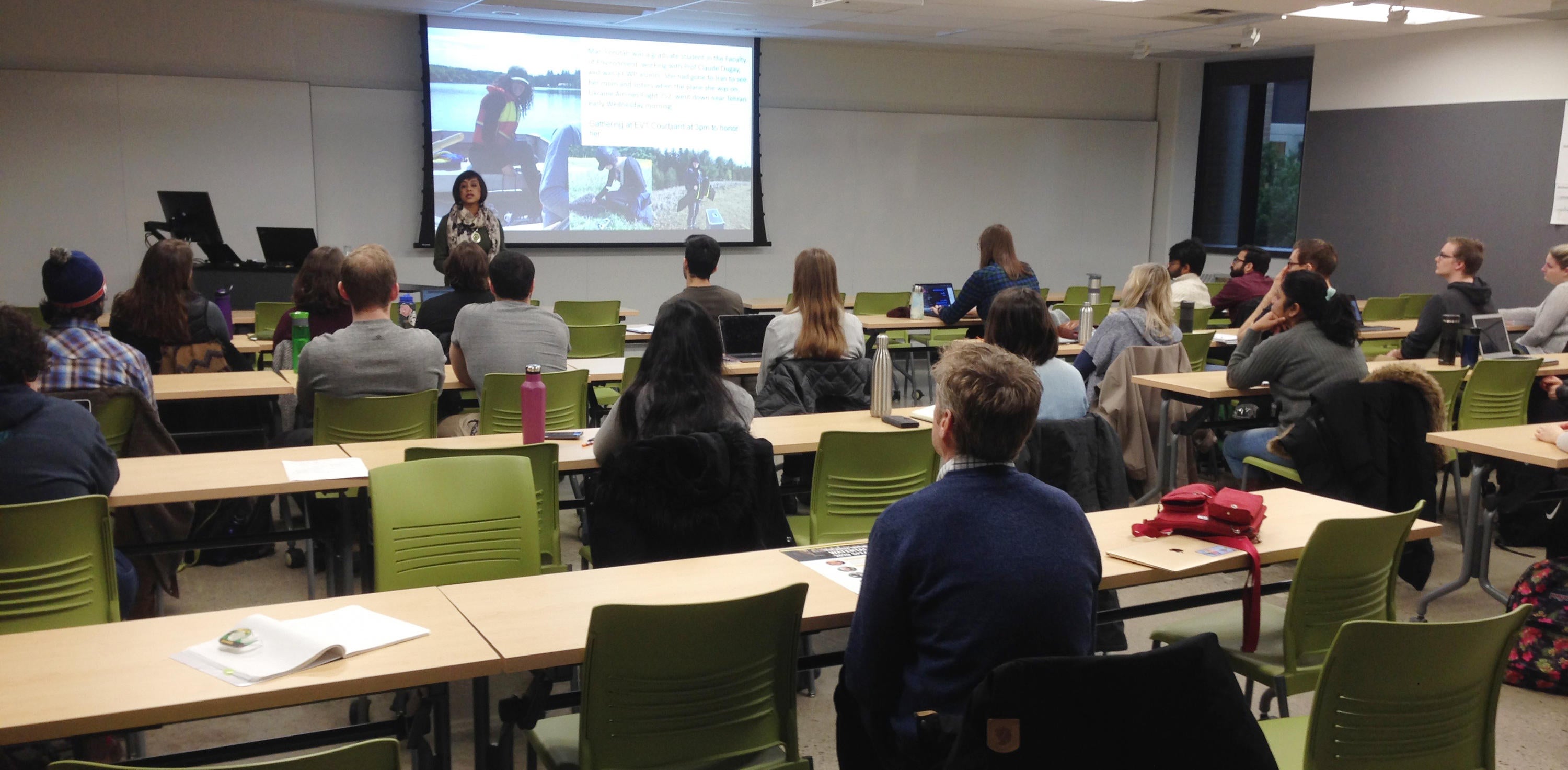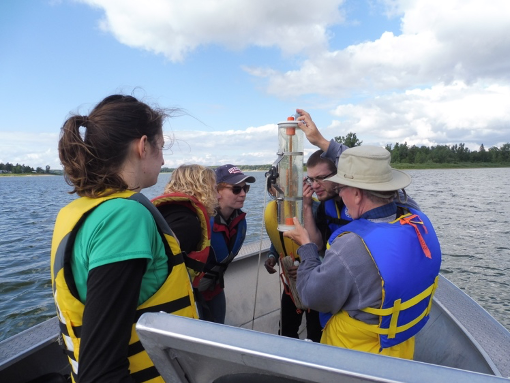
Nandita Basu, incoming Director of the Collaborative Water Program, welcomes WATER 601 students.
On Friday, January 10, a new cohort of graduate students began the challenge of the University of Waterloo’s Collaborative Water Program (CWP) as the program’s WATER 601 course held its first session. The innovative CWP is jointly offered by 11 Waterloo departments and schools from all six academic faculties, making it Waterloo’s, and perhaps Canada’s, most interdisciplinary graduate program on water.
Since the CWP launched in 2014, almost 300 students have enrolled in the program. This year’s cohort of 40 students comes from a variety of disciplines, including geography and environmental management, civil and environmental engineering, earth and environmental sciences, biology, environment, resources and sustainability, architecture, applied mathematics, and chemical engineering. CWP students complete their specialist training in their respective home departments and schools, while working with students from other disciplines in the CWP’s two interdisciplinary courses: WATER 601 and WATER 602.
The incoming CWP Director, Nandita Basu, welcomed students to the program noting that “the Collaborative Water Program will be one of the most amazing experiences at university that you will have. It is a unique program that crosses disciplinary boundaries such that we can learn from each other in addressing the world’s “wicked” water problems.”
Nandita, who is a professor in the Departments of Civil and Environmental Engineering and Earth and Environmental Sciences, and is University Research Chair in Water Sustainability and Ecohydrology, takes over from Rob de Loë. Rob, professor in the School of Environment, Resources and Sustainability, ably directed the CWP since 2018.
WATER 601 instructors, William Annable and Susan Elliott, welcomed students noting that the course would encourage participants to get out of their comfort zones, and to collaborate with students and stakeholders outside of their specialist disciplines to better appreciate different perspectives, approaches and contributions to addressing water management challenges.

WATER 602 students in the Grand River Watershed
More information about the Collaborative Water Program is on the Collaborative Water Program website, in the brochure, or available by contacting the Water Institute.